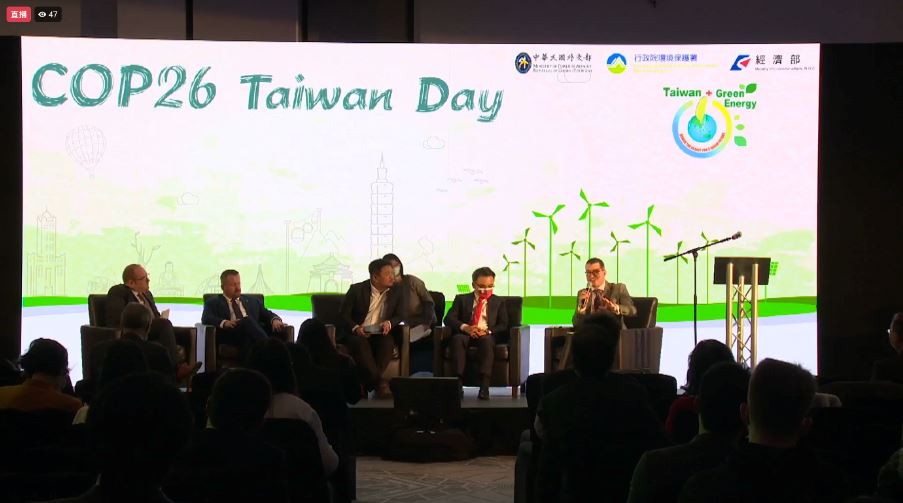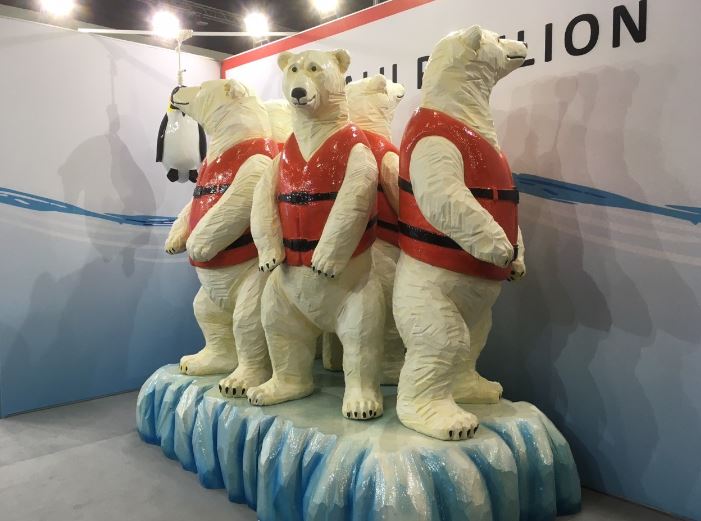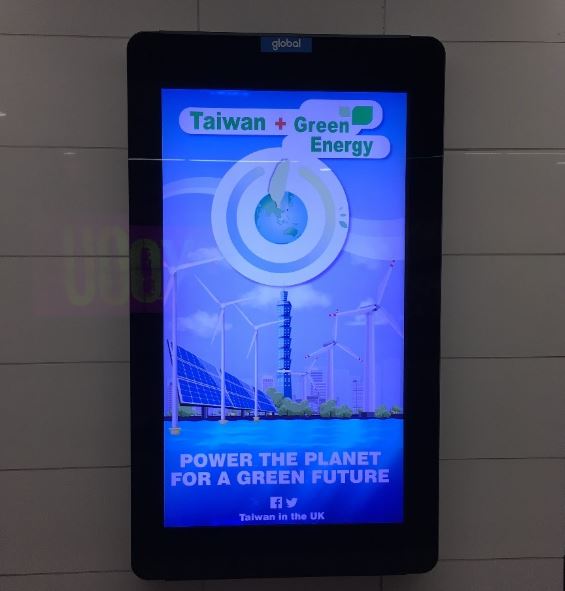You are here
- Home
- How does Taiwan participate in international climate change negotiations?
How does Taiwan participate in international climate change negotiations?
Geopolitical tensions in Asia have drawn attention to the precarious place of Taiwan in international relations. Taiwan is a self-ruling island with its own government, constitution and laws. Taiwan as a geopolitical entity has existed in its present form since 1949, when the Republic of China initially set up a government in exile on the island after being defeated by Mao Zedong's Communist army. Despite developing into a de-facto independent state and a flourishing democracy in the decades since, Taiwan is today not recognised by the United Nations. China regards Taiwan as a ‘breakaway’ province which will eventually be ‘reunified’ through force if necessary.
Taiwan is a wealthy and in terms of carbon, a high-emitting country of 23 million people. Taiwan’s actions will hence have a significant impact on global efforts to limit warming to 1.5 degrees Celsius, and on fair and equitable attempts to adapt to climate change worldwide. This article explains how, despite its exclusion from the UN, Taiwan participates in global climate change action.
DOES TAIWAN PARTICIPATE IN COPs?
As Taiwan is not recognised by the UN, it is not a party to the United Nations Framework Convention on Climate Change and therefore cannot participate in COP negotiations as a signatory. The lack of UN recognition also means Taiwan is not a party to other state-level environmental treaties such as the Convention on Biological Diversity or the UN Convention on the Law of the Sea.
However, Taiwan can have a presence at climate COPs – and similar state-level environmental negotiations - in other ways. Taiwan has in the past sent delegations into formal negotiating spaces as observers, however opportunities for doing so have diminished in recent years. A small number of countries formally recognise Taiwan, and these countries may speak for Taiwan during negotiations or include Taiwanese representatives in their delegations. For example, at COP26 in Glasgow, Tuvalu – a Pacific island nation which has formal diplomatic ties with Taiwan - called for the inclusion of Taiwan in the UNFCCC during their speech at the World Leaders’ Summit, and included Taiwanese nationals in their delegation and national pavilion. These opportunities are, however, subject to contestation. In June 2022, Tuvalu’s foreign minister withdrew from the UN Oceans Conference after China challenged the accreditation of three Taiwanese nationals included in Tuvalu’s delegation.
The Taiwanese Government also seeks to have a visible presence in COP host cities away from the formal negotiation venues. During COP26 in Glasgow, Taiwan advertised on the city’s public transport network across the entire conference period. Taiwan’s Ministry of Foreign Affairs hosted a ‘Taiwan Day’ side event in Glasgow city centre, where political figures from Taiwan and other nations were invited to discuss cooperation on climate change.
‘Taiwan Day’ side event at COP26, Glasgow, November 2021
ALIGNMENT WITH INTERNATIONAL TREATIES AND ORGANISATIONS
Taiwan is not a signatory to the Paris Agreement, but the country has its own Intended Nationally Determined Contribution (INDC). INDCs are pledges which each party in the UNFCCC produces, outlining the actions they will take to reduce emissions and adapt to the impacts of climate change. Although not recognised by the UNFCCC, Taiwan’s INDC is nonetheless a strategy which shows its willingness to cooperate with global climate goals, and enables Taiwan to align itself with the targets and language of the international community. Taiwan has set the goal of achieving net-zero emissions by 2050, and is continually developing plans and legislation to adapt to climate change. As with many high-emitting countries, however, the ability and willingness of Taiwan to meet these targets in reality has been questioned by environmental non-governmental organisations and some climate change researchers.
As above, Taiwan does have diplomatic relations with a small number of countries. A critical ongoing issue at the COP negotiations is the financial support that high-emitting nations must provide to less wealthy countries to adapt to climate change and compensate for loss and damage. Many of Taiwan’s allies, including Tuvalu, Palau, the Marshall Islands, and Saint Vincent and the Grenadines, are small island developing states in the Pacific and the Caribbean, who are among the most vulnerable people to climate change. The Taiwanese government has been involved in developing climate change adaptation and resilience programmes in these countries. Taiwanese experts have also provided support to the delegations of their less wealthy allies, such as Tuvalu, at formal UN negotiations.
Sculpture by Taiwanese artist and Tuvalu Advisor for Climate Emergency Vincent JF Huang, in the Tuvalu national pavilion at COP26 in Glasgow, November 2021
SOFT POWER?
Formal COP negotiations are only one part of the global climate change effort. Taiwan is rapidly emerging as a centre of expertise for offshore wind energy in Asia thanks to cooperation with several European companies, and Taiwan’s local governments increasingly participate in international city networks such as ICLEI (Local Governments for Sustainability) and the Global Covenant of Mayors for Climate and Energy. Whilst there is still much room for improvement in its own emissions reduction and adaptation initiatives, Taiwan therefore illustrates the continued role for ‘soft power’ and bilateral agreements in progressing international climate change action.
This article is an opinion piece that was been written by Dr Leslie Mabon is a Lecturer in Environmental Systems in the School of Engineering and Innovation at The Open University, as a response to a call for articles from our OU colleagues, that relate to climate change from their own disciplinary or lived experience. Dr Leslie Mabon is currently Co-Principal Investigator of the ESRC-MOST joint project ‘Urban greening for climate-resilient neighbourhoods: linking scholars and cities across the UK and Taiwan’ (ES/W000172/1). Dr Leslie Mabon is a social scientist by training, with a particular interest in what living in a changing environment means for coastal societies. Leslie is a member of the Young Academy of Scotland, and a Future Earth Coasts Fellow.
Advertising by the Taipei Representative Office in the UK, Glasgow Subway, during COP26, November 2021
Further reading and references
Mabon, L and Shih, W-Y (2021) ‘Is there a case for recognising Taiwan at the international science-policy interface for climate change?’ Frontiers in Climate DOI: 10.3389/fclim.2021.750443
Mabon, L (2021) ‘Taiwan’s status at the science-policy interface for climate change: why getting it right matters’ Taiwan Insight https://taiwaninsight.org/2021/11/10/taiwans-status-at-the-science-policy-interface-for-global-climate-change-why-getting-it-right-matters/
Chia-Chi Lee, Kuo-Ching Huang, Shih-Yun Kuo, Chien-Ke Cheng, Ching-Pin Tung & Tzu-Ming Liu (2022) Climate change research in Taiwan: beyond following the mainstream, Environmental Hazards, DOI: 10.1080/17477891.2022.2074954
Related articles
- Reducing your carbon footprint this Festive Season 28th October 2024
- Accelerating Ambition and Impact: EAUC Conference 2024 30th July 2024
- Driving change: Imagining a different transport future 23rd July 2024
- Donating items to MK Food Bank 21st July 2024
- Butterflies as indicators of our impacts on nature - Climate Perspectives 9th July 2024


